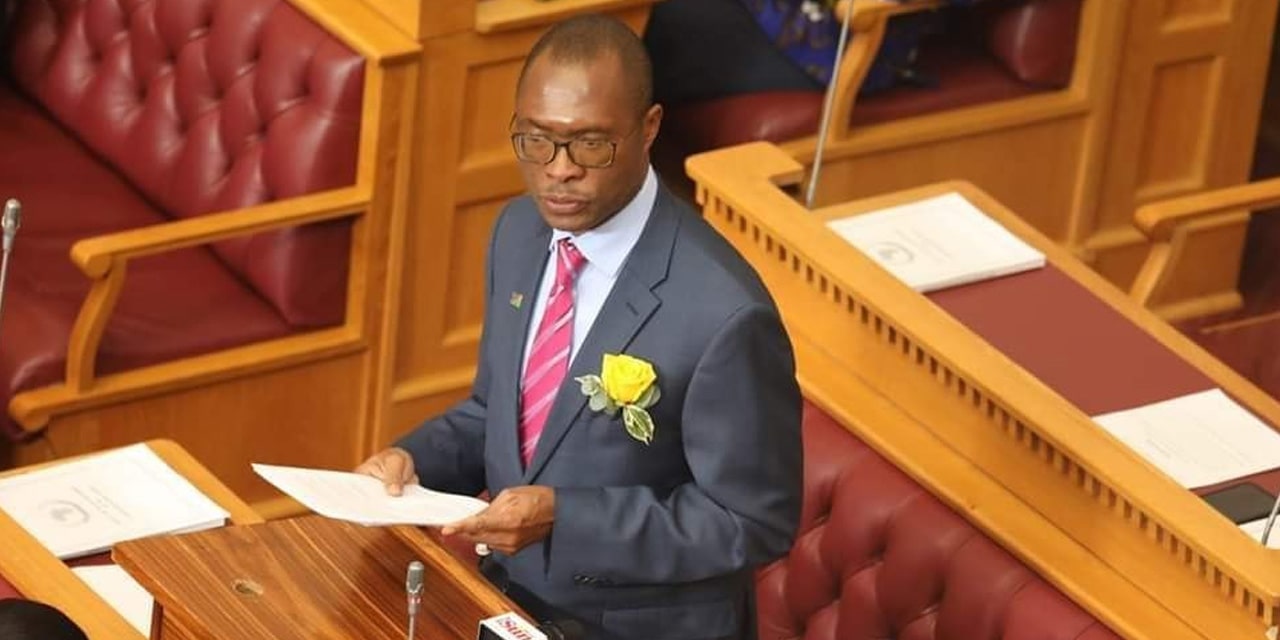Kandjemuni Kamuiiri
It has emerged that Namibia will fork out a total of N$29 billion for salaries and benefits for its civil service this year, which translates into about N$2.4 billion monthly.
According to the Minister of Finance, Iipumbu Shiimi, “annually we spend N$29 billion and if you divide that by 12 it would roughly be N$2,4 billion to N$2,5 billion monthly, same goes for last year. It’s more or less the same.” This revelation has raised concern whether Government could afford it considering its precarious financial position, with the minister maintaining that Government will still continue to honour bonuses, which are paid out on each employee’s birthday. On whether the current civil service wage bill is sustainable at the N$2.5 billion monthly, labour expert, Herbert Jauch, said “if you look at the figures only then it’s not sustainable because Namibia ran up into such huge debts and has to pay huge amounts of interests on its debts.”
Jauch pointed to the recent N$3.9 billion loan deal signed between Government and the International and Monetary Fund (IMF) as proof that Government could come under more pressure to cut the wage bill.
According to the labour analyst, this could have been avoided if Government had acted earlier and had found a way other than running to the IMF for a loan. “But now I think we are in big problems, Government has to pay more on their loans, which means they will be under even greater pressure to reduce the wage bill,” he said.
Jauch further explained that the other perspective would have been to change the structure of the civil service in terms of making it efficient and increasing the outreach, “so that we have an economic spin.”
“The civil service interventions would then kick start the economy and have returns coming back to Government in the form of taxes. Since that has not happened, it is unlikely to occur now.”
On what Government can do considering that the civil service wage bill is taking up a big chunk of the revenue generated, Jauch mentioned that by having fewer ministries, Government would have far less top structures. “Like less executive directors, less directors generally because that is an expensive exercise,” he said.
“They could do something else; this is greenlining the top structures. We have too many ministries and they are too heavy in terms of the directorate. That is where a lot of money goes and where a lot of money could have been saved. As well as perks like car schemes, these are things that should’ve been reviewed and abolished over the years. Top benefits for management like car allowances and so forth could have been avoided and could’ve been a substantial saving.”
When asked whether retrenchments or salary cuts could be a solution, Jauch said “No, salary cuts would be illegal, they cannot do that.”
“What they have done for a while now is just not granting increases so that the actual salary or the real wage is decreasing. As inflation eats up some of the wages and if no increase is granted then it means that workers effectively already get less, which we have seen happening for some years already. I feel that in about two years we will in the end see retrenchments.”
Whether the Government’s current strategy of freezing recruitments is helping or whether early retirements can be considered, Jauch said,”it does not help the thousands of young people who are entering the labour market every year , who need jobs.” “Retrenching and not recruiting you create another problem like higher unemployment, it creates more people who are unable to pay taxes to government , so the crisis gets worse. Retrenchment is very short sighted and I am not in favour of that at all.”
” If retirement is voluntary and it helps, then yes it can be considered.”
Economist Mally Likukela also expressed concerns on the sustainability of the civil servant wage bill , stating that “the wage bill is not only unsustainable ,but also growth stifling and counterproductive. The wage bill is not consumable with productivity.”
“The only solution is to align wages with performance so that productivity increase can translate to growth and create additional fiscal space to accommodate and manage the bill.”
On retrenchment Likukela stated that it is counterproductive. Based on Likukela’s sentiment Government retrenchment and income tax revenue will be lost. “There will be additional pressure on social welfare programme and unemployment rate will rise. This will reverse the gains achieved in the fight against poverty and inequality in the country.”
In terms of the benefits of current strategy of freezing recruitment, Likukela said the strategy is not working due to non-commitment of Government to the strategy.
“There is no compliance to the strategy. Again, early retirement will send more people on the social protection programme, which is currently facing financial challenges. The answer is not retrenchment or retirement… the answer is productivity and efficiency.
Namibia’s civil service is reported to be over 100 000 strong, with the Cabinet consisting of 21 Ministers and 20 Deputy Ministers.
A Namibian cabinet minister rakes in N$1, 089 000 per annum, including allowances translating to about N$91 000 per month, while a deputy minister takes home N$788 366 per annum.




